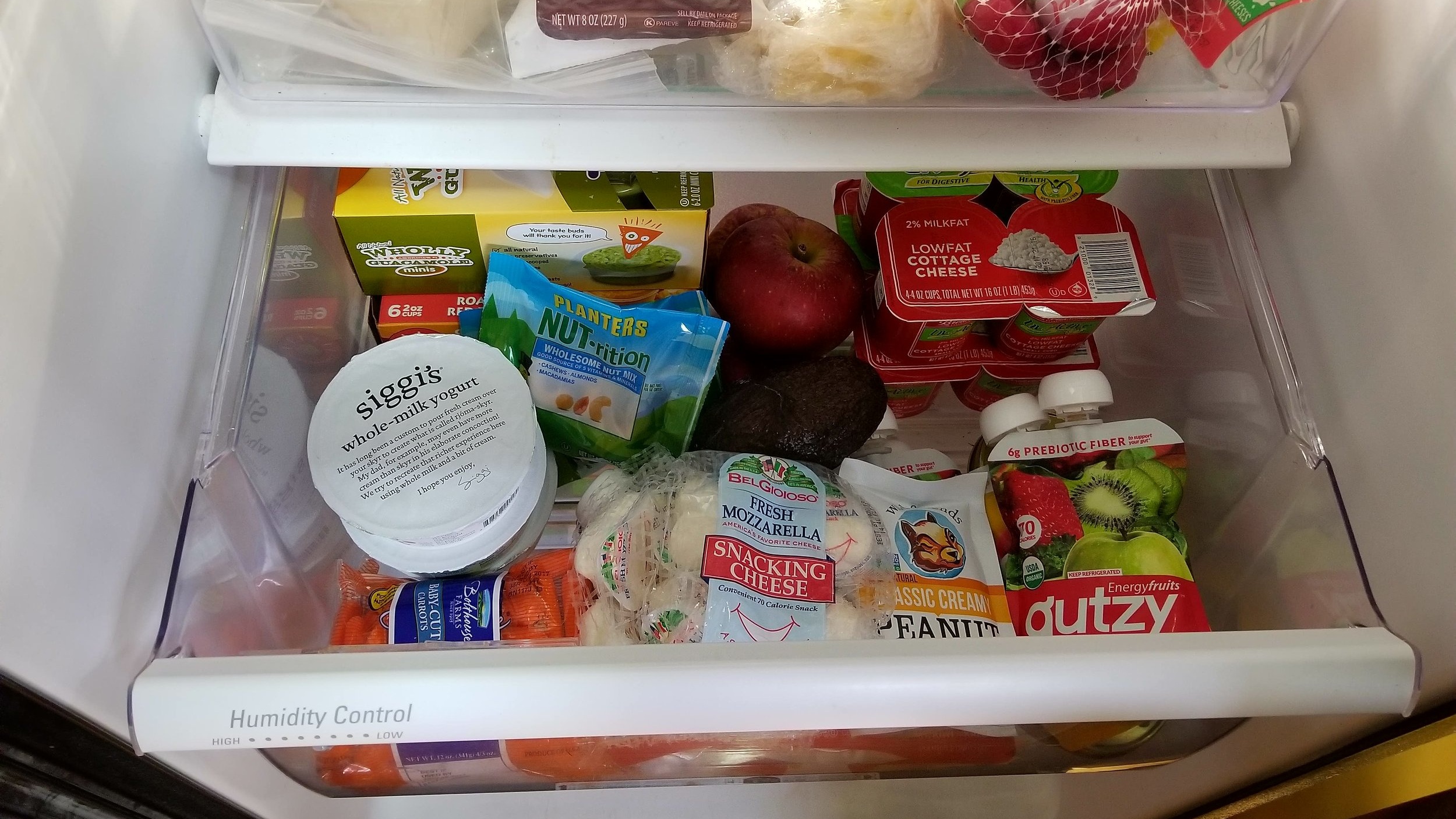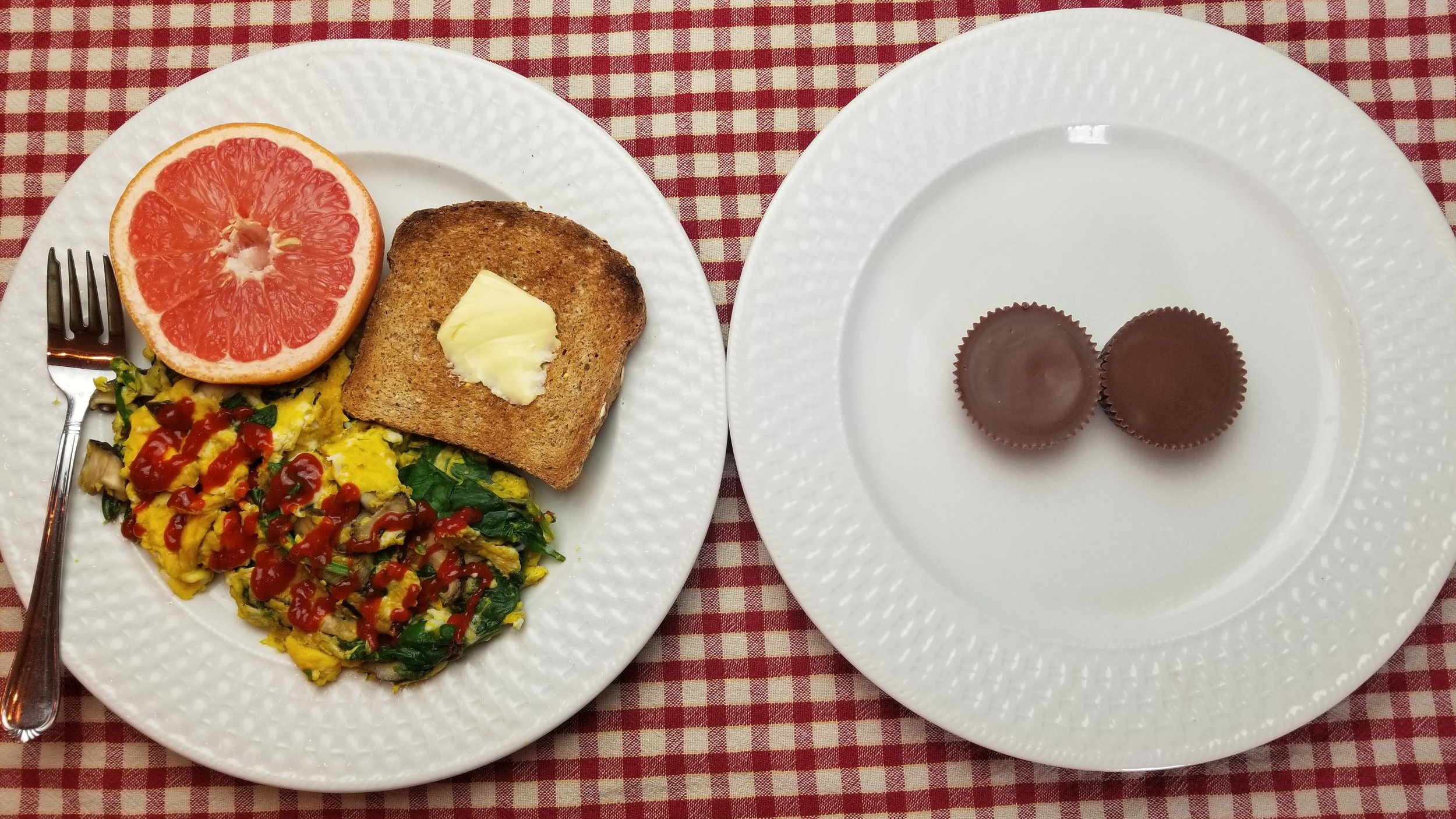What Causes Overeating And How Do I Stop?
If you constantly have images of food dancing in your head, you aren’t alone!
What causes overeating?
More than 60% of Americans are overweight or obese. This is despite all the advancements in health, nutrition, and available diet and exercise programs.
Some would argue that being overweight is a choice. After all, while some medical conditions can cause weight gain, the direct cause of being overweight is usually overeating. And eating is something within our control, right?
It’s true that a person’s day-to-day food choices determine health and weight. But I disagree with the underlying notion that overweight people want to be fat, or want to experience health problems.
The issue is more complex than just choosing to be thin or fat.
The physical manifestations of obesity and overweight are symptoms. The health problems are symptoms. Yes, they are direct symptoms of overeating. But overeating is also a symptom…but of what?
What causes overeating?
If overeating and obesity are the symptoms of a deeper problem, the question is: What causes us to overeat? And can these underlying problems be fixed?
In my online Food Freedom course, I discuss at least fifteen causes of overeating. Fifteen! And that probably doesn’t even cover all the reasons that cause people to eat more than they need!
But I have found that almost all of these reasons fit into four blanket categories that describe the tendency to overeat: human biology, under-eating and dieting, stress and emotional eating, and nutrient deficiency.
What causes overeating and how do I stop?
Overeating Reason #1: Human Biology (we’re born “eaters”)
Have you ever worked in an office environment where food is always available in the break room? It’s really hard to resist that food, isn’t it? You think about it, don’t you? Those donuts might be getting lonely…you better go check on them.
Here’s the thing, wanting to eat donuts – or whatever’s available in the break room – is not your fault, nor is it a willpower issue. You actually have no control over the desire to eat because we are biologically wired to eat when food is available.
It’s an ancient survival mechanism that kept the human race alive through countless famines, which was the main threat to our survival as a species for thousands of years.
Many of our hormones and basic impulses are designed to get us to eat as much as possible whenever food is available.
This becomes a bit problematic when copious amounts of food are available at all times, as is the case in our modern, obesogenic environment.
Overeating is a normal human behavior. If food is available, we are programmed to eat it. These donuts don’t stand a chance!
The overeating solution: Design your environment to be more conducive to your goals.
If given the choice between an apple and a donut, most people will choose the donut every time. But, if the only thing available is the apple, you’ll choose the apple.
You have to make it easy to make the right choice!
If there’s always junk food in the office break room, try to get your co-workers on board to bring in healthy alternatives, or at least ask that they put the junk in the fridge or away in a cabinet.
Change your food environment in any way you can. Make junk food less available at home. Put fruits, nuts, and veggies within easy reach. Eat from smaller plates. Don’t drive or walk past the donut shop on your way to work. For more tips like this, see this post about how you are sabotaging your diet.
This is the “snack drawer” in my refrigerator. I stock it with healthy and easy-to-grab items. My family and I are more likely to eat healthy when the healthy stuff is available…and the junk food is out of sight.
What causes overeating and how do I stop?
Overeating Reason #2: Under-eating and dieting (a diet is just a self-induced famine)
Watch a few episodes of the hit show on Discovery Channel called Naked and Afraid. You’ll notice that, as the participants endure a forced famine and begin to lose weight, they become obsessed with food: obsessed with finding it, thinking about it, and talking about it…
And what do you think they do as soon as they get home from their 21 days of starvation? They eat everything in sight!
Come to think of it, this is what happens to most Americans at the end of every day. They either don’t make time to eat during the day, or are “being good” on their diet…and then get home and can’t understand why their nighttime eating is out of control!
Not eating enough – whether it’s because you forget to eat during the day, or you’re actively trying to diet, or you’re on the show Naked and Afraid – trips hunger hormones and ultimately leads to overeating and sometimes even binge eating.
Once you reach a state of primal hunger, it’s almost impossible NOT to overeat.
If you reach a state of primal hunger (i.e. you’re HANGRY), there’ll be no stopping you!
The overeating solution: Never cut calories too low, too quickly.
Stop dieting.
Never cut out entire food groups (it’s been shown time and again to be unsustainable).
Never go on the show Naked and Afraid.
And if you’re so busy that you tend to skip meals or “forget” to eat until you are ravenously hungry, you need to re-evaluate your schedule and your priorities and make time to eat!
If you actually do need to lose weight, that’s okay too. It can be done. But what’s the rush?!? SLOW DOWN! Stop sending your body the signal that there’s a famine! You have to eat!
Try this: track your typical diet for a week or so to get an average number of calories consumed every day. Drop that number by 150 (this is the equivalent of eliminating a can of Coke or a glass of juice), while simultaneously adding in 20 minutes of brisk walking every day. Drink plenty of water and follow the recommendations below about adding more nutrient-dense foods.
The combination of doing those things will help you burn 200 to 300 extra calories every day, will keep your hunger hormones in balance, and prevent misery.
Yes, it will take longer to lose fat this way and you may not be “bikini-ready” by June. But small changes will be far more sustainable and you’ll save yourself from the yo-yo weight gain-loss roller coaster!
To stop overeating, you must EAT! A healthy lifestyle is a balance between health and fun!
What causes overeating and how do I stop?
Reason #3: Emotional or stress eating (standing in front of an open refrigerator will not solve your problems)
You had a rough day at work. Your kids are on your last nerve. None of the laundry or dishes are done. You missed your workout. You got into a fight with your spouse. Your checking account is nearing the red. You feel like a bad parent/spouse/employee.
Life is stressful. A pizza and a half gallon of Haagen Dazs sounds pretty darn good, right?
Eating is a pleasurable experience. It causes the release of endorphins and other feel-good chemicals in the brain.
Remember, this is part of our biological wiring. Nature made eating a rewarding experience on purpose. It ensures that we’ll continue to eat when food is available, which ensures the survival of our species.
Unfortunately, in our modern world, the brain’s pleasure response to food works against us in three main ways:
1.) Our bodies experience modern-life stress in much the same way as stress from a famine: by making us really hungry and in need of a “hit”.
2.) Our modern world is chock full of calorie-dense, delicious, and nearly irresistible foods.
3.) The neurochemical reward we get from eating - though temporary - is enough to create a connection between food and a way to cope with stress, emotions, or past traumas.
Overeating can be a coping mechanism to deal with stress.
The solution: Fix the source of the stress or learn to cope in better ways.
This one is probably the toughest to solve because food is so rewarding and the reward is so quick. Very few things in life will give you a dopamine hit faster than an Oreo.
But the Oreo is only a temporary solution, and usually one that makes you feel worse in the long term.
If you’re tired and need more sleep, food won’t solve that problem. Food will never help you get control of your finances. If you hate your job, eating won’t help you find a new one.
Stress eating won’t stop unless you can identify and fix the source of the stress, and/or modify your response to that stress.
Do your best to remove the source of the stress first. And if that’s not possible, work on stress resilience. Make time for yourself every day. Listen to uplifting Ted Talks, podcasts, or e-books. Take a break from social media. Talk to a good friend. Get outside for a walk. Try guided meditation. Take up a hobby.
Make time for yourself every day. Even 10 minutes of quiet time or walking in nature can help reduce stress.
What causes overeating and how do I stop?
Reason #4: Nutrient deficiency (over-fed, under-nourished)
It’s hard to believe that nutrient deficiency could be a problem given that over 60% of Americans overweight or obese, right? Clearly we’re eating enough food!
The problem is most of the food we’re eating is calorie-dense and nearly void of nutrients.
A recent landmark study found that eating processed foods caused overeating to the tune of about 500 extra calories per day. And considering that nearly 70% of the foods that most Americans consume are processed, this is a big deal!
When you eat calorie-dense but nutrient-poor foods your body doesn’t receive the crucial vitamins, minerals, fiber, protein, and healthy fats it needs to function. Additionally, these foods don’t physically fill the stomach and are digested quickly.
What happens? Your body keeps asking for MORE!!!
The plate on the left contains about 400 calories of food. The plate on the right also contains about 400 calories of food.
The solution: Eat more of the good stuff, and less of the bad.
Look at the photo of the two plates above. Astoundingly, both plates contain about the same number of calories (400). But there’s a pretty stark contrast in the physical amount of food you get to eat when you focus on more nutrient-dense options!
But let’s be real here. It’s not sustainable to eliminate our comfort foods entirely. That’s a recipe for failure. So, if the average American is eating 70% processed foods and only 30% foods from nature, let’s just flip flop those numbers!
You can do this by adding in lots of cell-nourishing foods like spinach, broccoli, cucumbers, berries, citrus fruits, eggs, and nuts, while simultaneously reducing reliance on processed foods by reducing portion sizes. Go ahead and eat the Doritos, but don’t eat them directly from the family-size bag…and eat them with something healthy, like an apple!
If you consistently nourish your body with nutrient-rich foods, your hunger hormones will come back into balance and you’ll be less inclined to overeat.
Overeating can be overcome!
Overeating is common, but it’s important to remember that there are valid reasons we do it. An open-minded and exploratory attitude is essential to uncover and understand the reasons we eat more than we need.
Overeating can be a hard habit to break, but you can do it! Use the tips I provided above and seek help if you need it!
Want to take control of your eating behavior and learn how to eat more mindfully? Get on the wait list to join the Food Freedom course that launches in September! Simply fill out the form below and you’ll be first to know when the course is open!
I hope you enjoyed this post and thank you for reading!
If you want to stay updated on blog posts and all the happenings at Kelly Bailey Wellness, please sign up to receive my bi-monthly newsletter! Just scroll to the bottom of the page and enter your email address where it says “subscribe”!
Blog Author: Kelly Bailey, IIN certified holistic nutrition coach, and NPTI certified personal trainer
Learn more about the author here.










